Production Process
We use natural fibers such as Hemp, Bamboo, Nettle (Allo), Merino Wool, Organic Cotton that are all 100% biodegradable fibers. First, most of our natural fabrics are handwoven by women in a treadle (foot) loom made up of wood in Bhaktapur. After weaving, the fabrics are naturally dyed in a small village near Kathmandu valley. On the third stage, all garments are handmade by home-based women in Bhaktapur. We kindly suggest all to reuse, repair, and recycle our clothes & accessories.

Handwoven
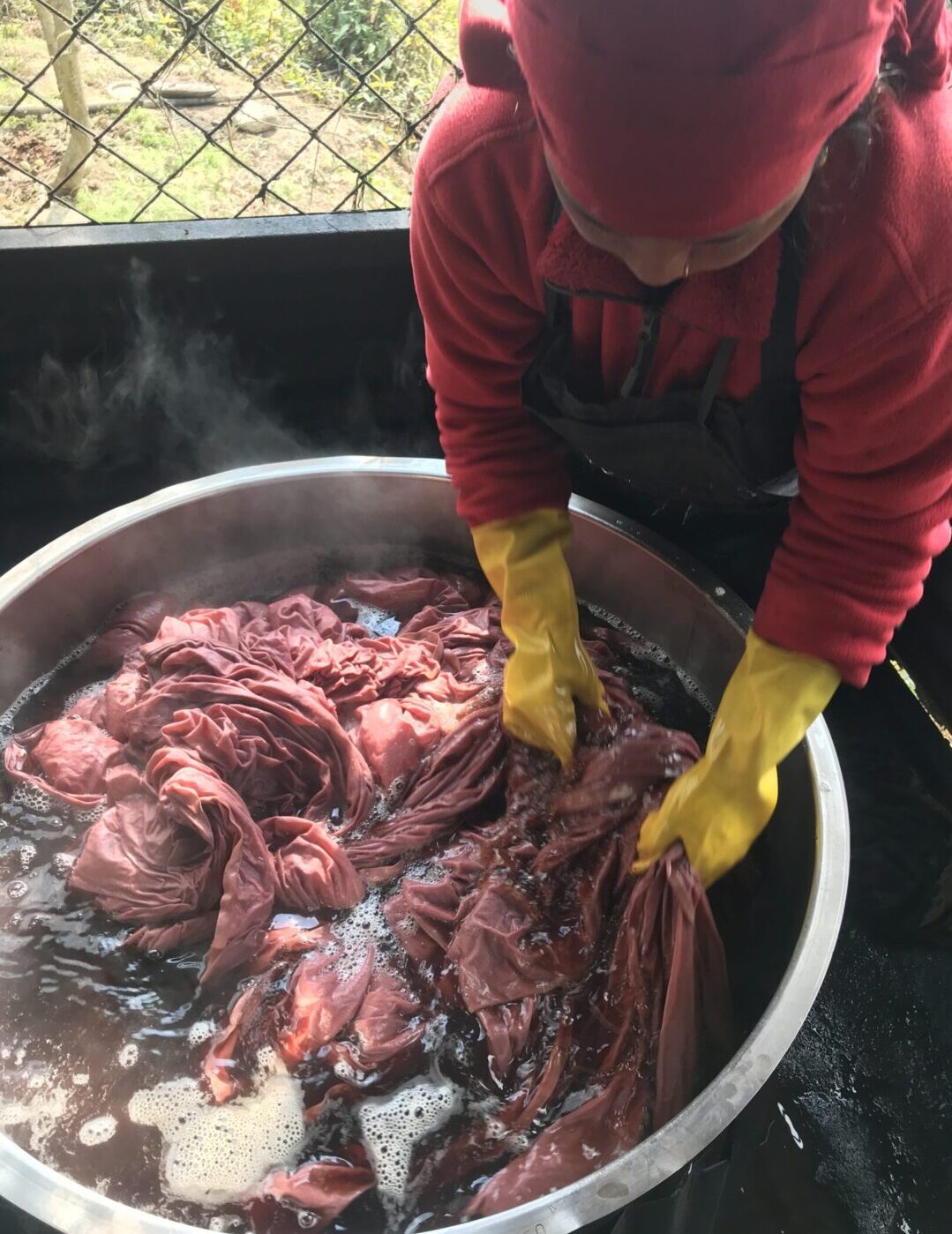
100% Naturally Dyed
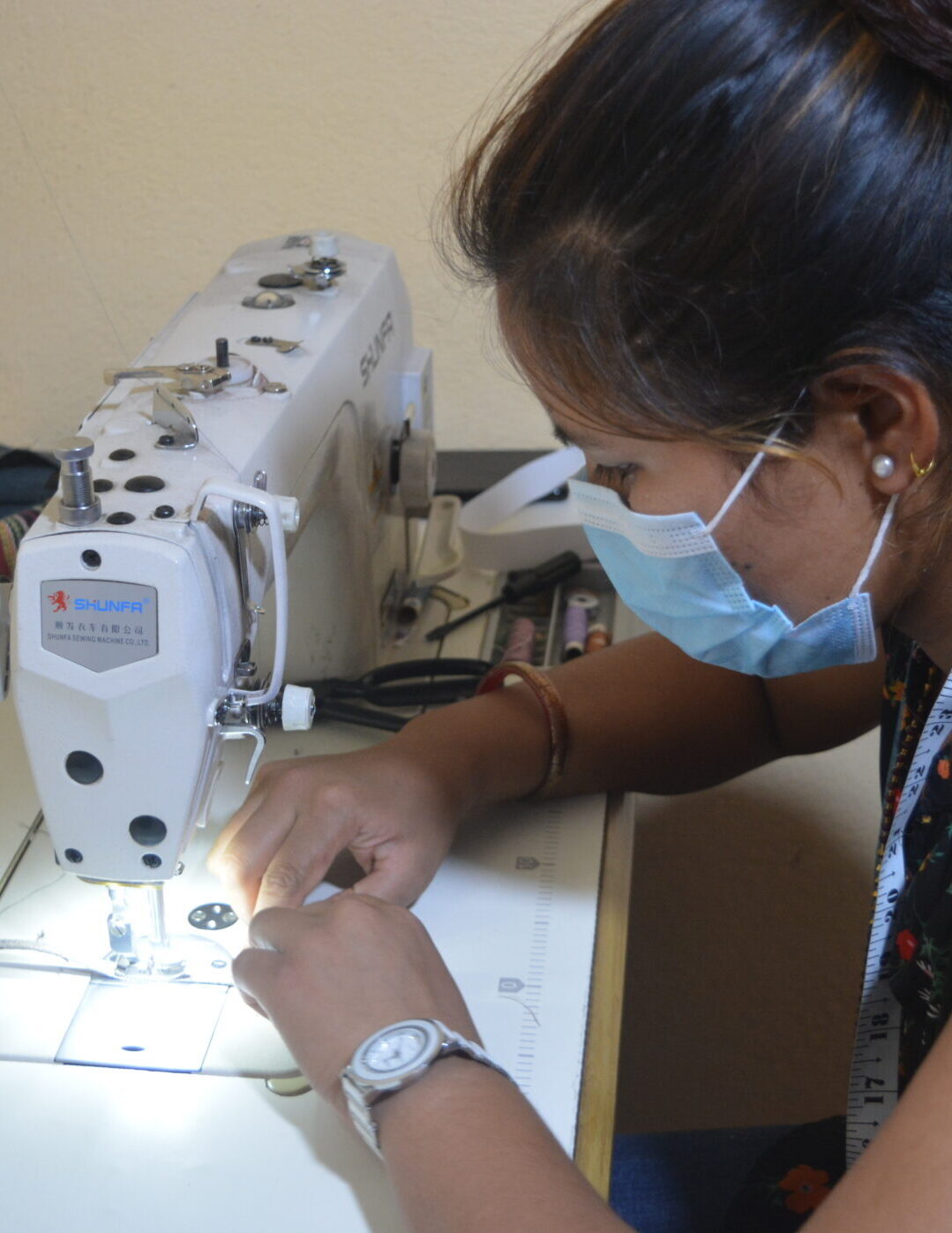
Handmade

Hemp Fabrics
Nepal is known historically for producing hemp fabrics, and it has been used for generations because of its strength, resilience and durability. Hemp is the most sustainable fabric as it requires much less water, grows rapidly without the need for fertilizers or pesticides, uses minimal nutrients from the soil, and biodegrades quickly. Furthermore, hemp fabric is durable, breathable, and hypoallergenic, which enhances its comfortability and resistance to mold, and UV light. Its versatility also makes it an ideal material for different uses ranging from clothing to accessories.
DIMAICHA uses hemp fabric to promote an eco-friendly and sustainable future while enjoying the perks of a premium quality and long-lasting material.
Handwoven and Upcycled Fabrics
DIMAICHA also use traditional Nepali handwoven cotton fabrics to support local Nepalese women weavers. All of our new natural fabrics collection are handwoven by women in a treadle (foot) loom made up of wood in Bhaktapur.
In addition, we use vintage Silk saris, leftover fabric scraps, and deadstock fabrics to create unique handmade and upcycled Nepali products (makeup pouches, bags, hair accessories) in collaboration with dedicated Nepalese, female entrepreneurs. Upcycled products are a sustainable option as it reduces the amount of waste that is dumped in landfills and eliminates the need to use fresh raw materials.
DIMAICHA collaborate with a female entrepreneur who runs an upcycling business in Nepal. She collects vintage fabrics from NGOs and second-hand shops, washes them thoroughly and guides women, as well as the man artisan, on what design to make, and finally she ensures the quality. All of our upcycled “Hair Accessories” are handmade by home-based Nepalese women in Kathmandu, whereas our SANI upcycled bags & pouches are handmade by a man artisan who has a special skill and ensures high quality.
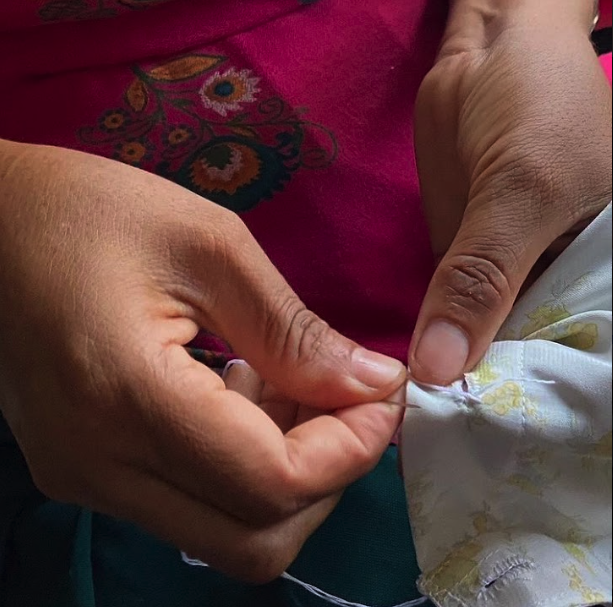
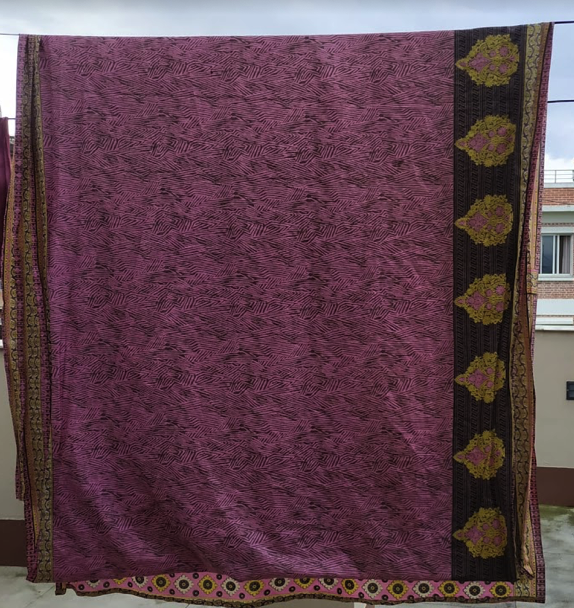
Natural Dyeing
Our natural dyeing partner is a Nepalese, women-led venture who develop their skills through training and self-earning. Our partner manufactures 100% pure natural dyes by using forest waste, natural raw materials as well as vegetable waste from the kitchen in a small, Nepalese village near Kathmandu Valley. All of our naturally dyed products contribute socially and environmentally.
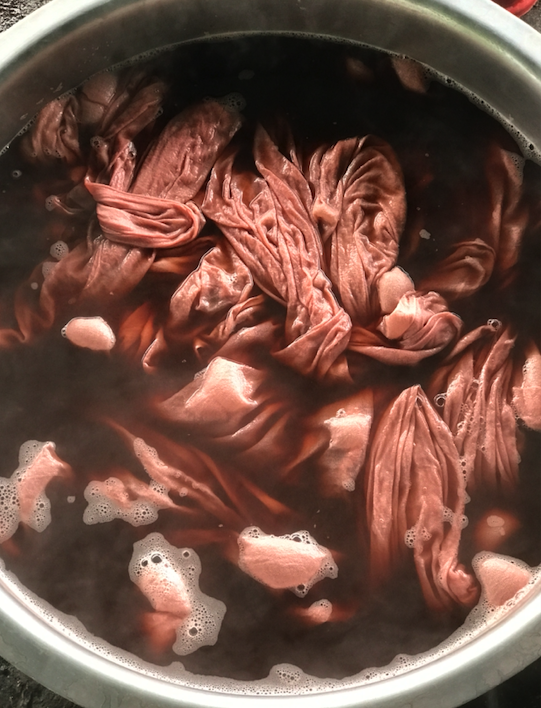
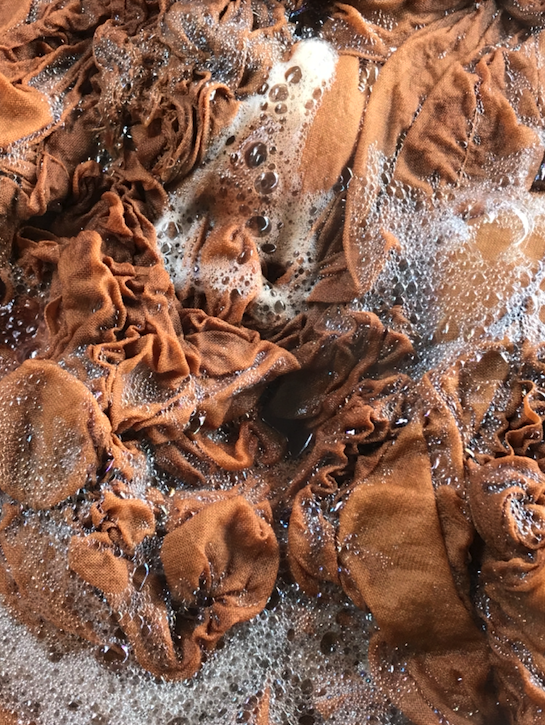
Sustainable Packaging
Following Nepalese tradition, our packaging and tags are handmade from the Nepalese Lokta paper, made from the bark of the Lokta plant, which grows in the Himalayan regions of Nepal. Nepalese artisans have been practicing the art of making Nepali Lokta paper for over a thousand years, and it is still practiced today. Nepali Lokta paper is a distinctive and sustainable paper-making tradition that is highly valued for its durability, texture, and eco-friendliness.
DIMAICHA collaborates with the women-led Nepalese handmade paper & recycling business “Jamarko” based in Kathmandu. By supporting this handmade paper industry, we can not only enjoy the beauty of this unique material but also contribute to the preservation of Nepalese cultural heritage and the protection of the environment.
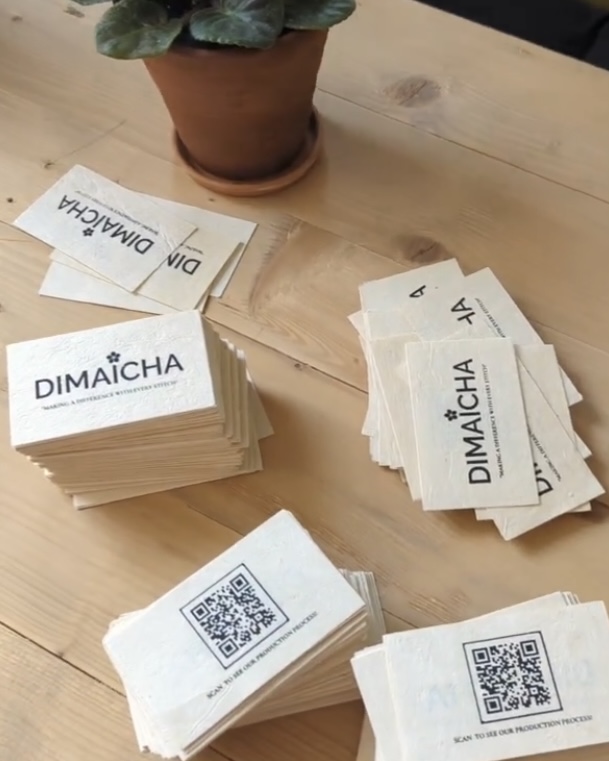


Empowering Women in Nepal
DIMAICHA empowers Nepalese women. Nepal has a male-dominated society where women are vulnerable. Thus, we collaborates with female entrepreneurs in Nepal who run sustainable businesses and provide fair job opportunities, especially to underprivileged and home-based Nepalese women. We also works closely with a Guaranteed Fair Trade Organisation that provides long-term employment to underprivileged women, providing them with fair and sustainable working conditions.
Contributing to Circular Fashion
DIMAICHA makes a commitment to help close the loop by making sure all the clothes and accessories are made from 100% biodegradable fibers and upcycled fabrics. We kindly suggest all to reuse, repair, and recycle our clothes & accessories. Natural fabrics that can no longer be recycled can be placed in the compost bin to decompose in nature. We are also working towards providing you easier solutions to treat your used clothing sustainably with us by collaborating with other sustainable Danish companies to contribute more towards circular fashion.
